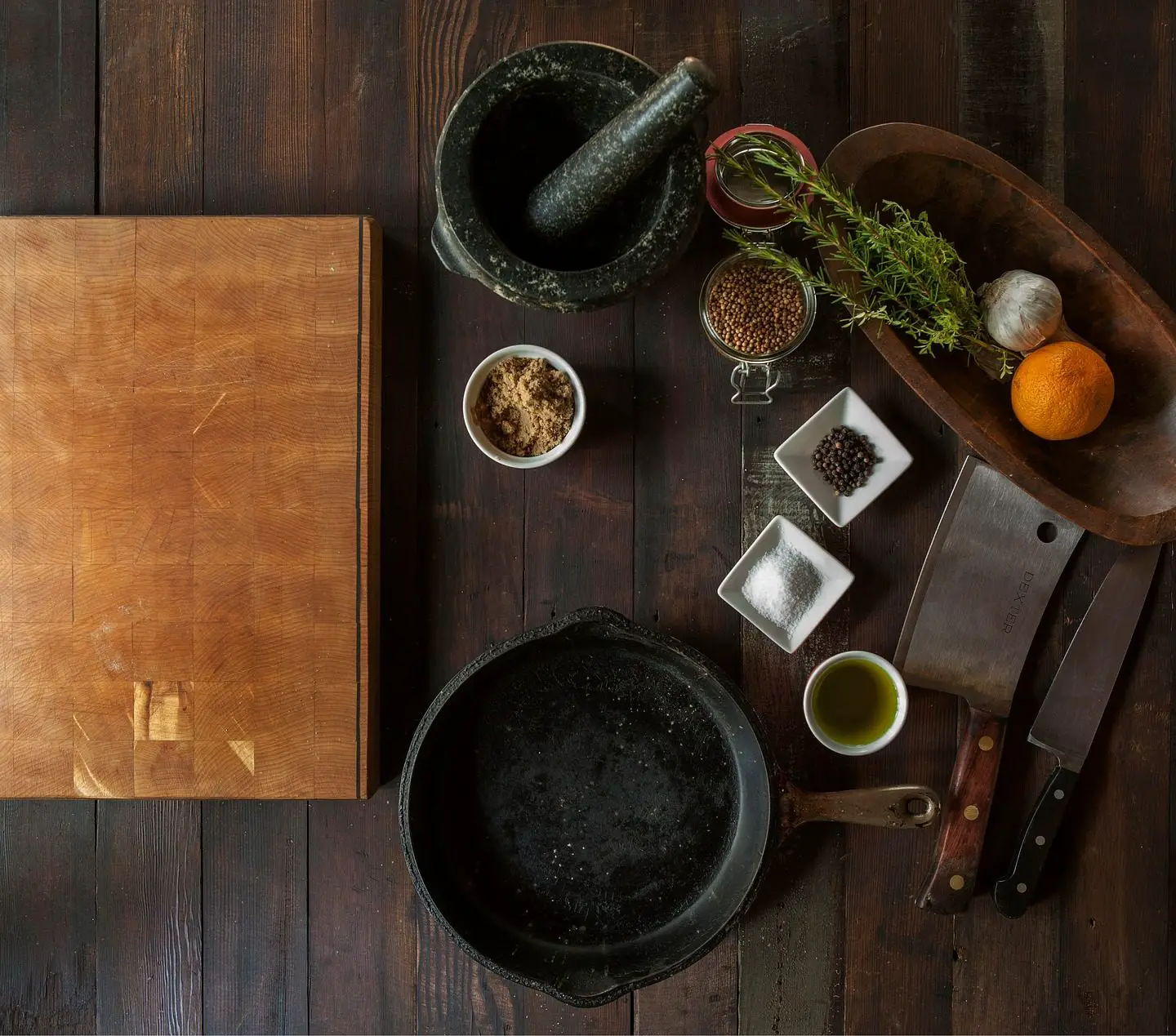Do you think you are great at cooking? Really – so why do your guests rarely eat what you cook? Time to investigate yourself … Here are some sublime signals that you are not masterchef in the kitchen. But at the same time, tips on how to improve your cooking skills!
1. Your kitchen knives at home have not been sharpened in years
Lethal knives combined with a poor technique to use them reveal most amateur chefs. Being able to handle knives is such a fundamental and important part of cooking, it is also impossible to fast-forward.
Tip! Knowledge is your best friend here.
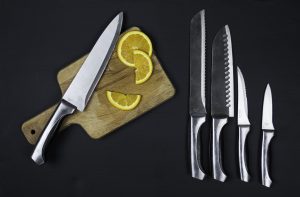
2. You don’t really know the difference between butter and margarine
Your mom used margarine in cooking in the 80’s and it worked just fine, so why wouldn’t you be able to continue with it? Most knowledgeable chefs scoff the margarine like the plague and call it “the most unnecessary product in the kitchen”. Butter is a straight-through natural product that lifts most flavors in cooking, while margarine is made from (often) bad oils that undergo a lot of processes to become margarine. The argument that light margarine contains fewer calories (and is cheaper than butter) is not something that helps your cooking skills, then it is better that you use less of the real raw material instead, ie butter. In addition, margarine contains trans fats which is bad for health.
Tip! Simply replace the margarine with butter and read about what the margarine contains.
3. You do not salt enough
Salting too little is much more common than people think. No dish in the world tastes good if it is too poorly salted. Of course, one should not kill the food with too much salt either, but the most common mistake is that substandard chefs are far too careful with the salt.
4. You have very long and stylish acrylic nails
Firstly, this is bad from a hygienic aspect, as bacteria can easily get stuck in places under the nails that can end up in the food. Secondly, it is difficult to get the small details of cooking right when chopping, decorating and fixing, when the nails are in the way.
Tip! With a little training you can get to the cooking pretty okay anyway by wearing thin plastic gloves. But the best advice is probably to cut the length your nails.
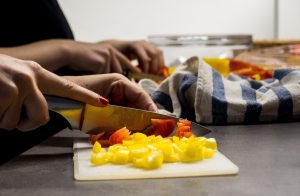
5. Your kitchen utensils consist of Teflon pans and plastic utensils
The Teflon boilers can seem agile and easy to clean, because things don’t get stuck as easy. And you don’t need that much fat. But. Teflon can emit toxic (even suspected particles that evoke cancer) particles and gases at high temperatures and also easily repair the boiler and must be disposed of, which is environmentally unfriendly. When you have Teflon pans, it is recommended that other kitchen utensils be made of plastic so as not to spoil the boilers. And then you bring even more poisons into your home and into the food. Old aluminum utensils are also not good, as this metal can also be harmful.
Tip! Replace the Teflon frying pan with a cast iron pan. It also gets better over the years if you take good care of it. The kitchen utensils should generally be made of materials such as glass, ceramics, titanium, cast iron, stainless steel, bamboo, wood, and natural clay.
6. You use the same ingredients as your “safe card”
No matter what. Ever seen in a cooking program how good it can be with truffles, coriander, bacon, the red strong sauce sriracha (popular in hipster circles) in dishes. But an ingredient does not save an otherwise poorly cooked dish. Either you use too little or too much of this ingredient because you lack the ability to feel balanced flavors and harmonies in a dish.
Tip! Let someone who is known to be honest (and who may be a part of cooking, suggested working in a restaurant or similar, or eating a lot of restaurant food) give a constructive statement about your cooking. Take care of the feedback and move on.
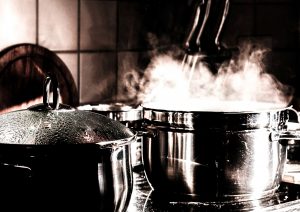
7. When shopping for food, you don’t have a goal
You stroll around a bit without a plan, filling the basket or cart with something “that works well”, without really knowing what you are doing. You also have no idea of what is already at home and what you need to complement your ingredients. When the cart is full you leave the store.
Tip! Prepare shopping at home. Make a food chart for a few days ahead, google exciting and fun recipes and check out what shopping lists are needed. Then you go shopping!
8. You have to google even the simplest recipes or check on the back of the rice pack how it is cooked
Freestyling in the kitchen is not really your thing, you follow (out-of-date) recipes that you would never dare to deviate from
Tip! In cooking you are allowed to experiment, it is mostly about tasting and feeling, something you learn over time. But are you uncomfortable in the spontaneous role maybe you should invest in baking instead? There it is more about chemistry and to follow exactly what it says, because otherwise the stuff collapses/does not become successful.
9. Your kitchen is a little too tidy and the kitchen appliances are never used
This testifies to the fact that there is too little action in this room simply. Maybe because you often eat out, buy home takeaway or throw in ready-to-eat meals in the microwave. If you hardly know how to use the oven’s functions or have not removed the protective plastic from the mixer, or have not been able to read the manual for your Kitchen Aid, then you are probably incapable as a chef.
Tip! Start by learning how to use the stove and oven, instead of letting the micron stand for all the cooking.

10. You don’t use (the right) spices
Missing spices is like forgetting accessories such as jewelry, shoes, bags, etc. to a perfect outfit and think that it will be accomplished solely by the garment in question. You need to add sting, character, depth, sweetness, salt, acid, heat and more to your dishes to make them more alive and interesting. Often spices fighting is about ignorance. If you use a can of Barbecue spice as the only flavor enhancer in your pantry you are revealed as a poor cook, sorry.
Tip! Use fresh herbs and do not always look for compressed “ready mixes” for spice mixes or broths, which contain additives such as glutamate and other things. You have a whole new dining experience ahead of you. Chili, chives, mustard powder, rosemary, sage, cinnamon, thyme, basil (there are lots of different varieties here!), Tarragon, lemon, garlic in different constellations – dare to test yourself!
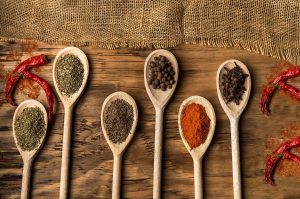
11. There are few or no vegetables in your refrigerator
No, corn does not count. Neither do the frozen peas. Fresh, fresh vegetables are an important part of almost all cooking, even when you are not vegetarian.
Tip! Head to the nearest grocery store and go to the place where all the fresh vegetables can be found. This is where you often find the fresh ingredients, while all the semi-finished products and preserves and bad ingredients with long shelf life are in the middle of the store. This is the case for most stores.
12. When you fry meat, you always do it well done
You have been told that it is delicious and think it is a bit “scary” when the meat is pink inside. On the other hand, you do not really know how to do medium-well or weird because you do not own a meat thermometer or control what heat you should have on the stove/grill.
Tip! Buy a roasting thermometer / grill thermometer and read our articles on how to perfectly cook meat.
13. You use semi-finished products (processed foods)
There is a reason why you don’t go past qualification in “Master Chef” if you can not make your own pasta but buy ready-to-cook all the time. But the more common varieties of semi-finished products in easy cooking are to use ready-made tomato sauce, broth cubes, flavored tubes (type Crème Bonjour), dried spices, frozen Chicken Tikka Masala, pressed lemon on the bottle, garlic cream on the tube, bearnaise sauce on can etc.
Tip! Start by learning how to cook things from scratch. If you have ever tasted a tomato sauce from sun-ripened tomatoes that have been allowed to stand on the stove for an entire afternoon on low heat, you will understand the taste difference and will never again eat something of inferior quality. Then you move on to learning how to make your own bearnaise sauce, etc.
